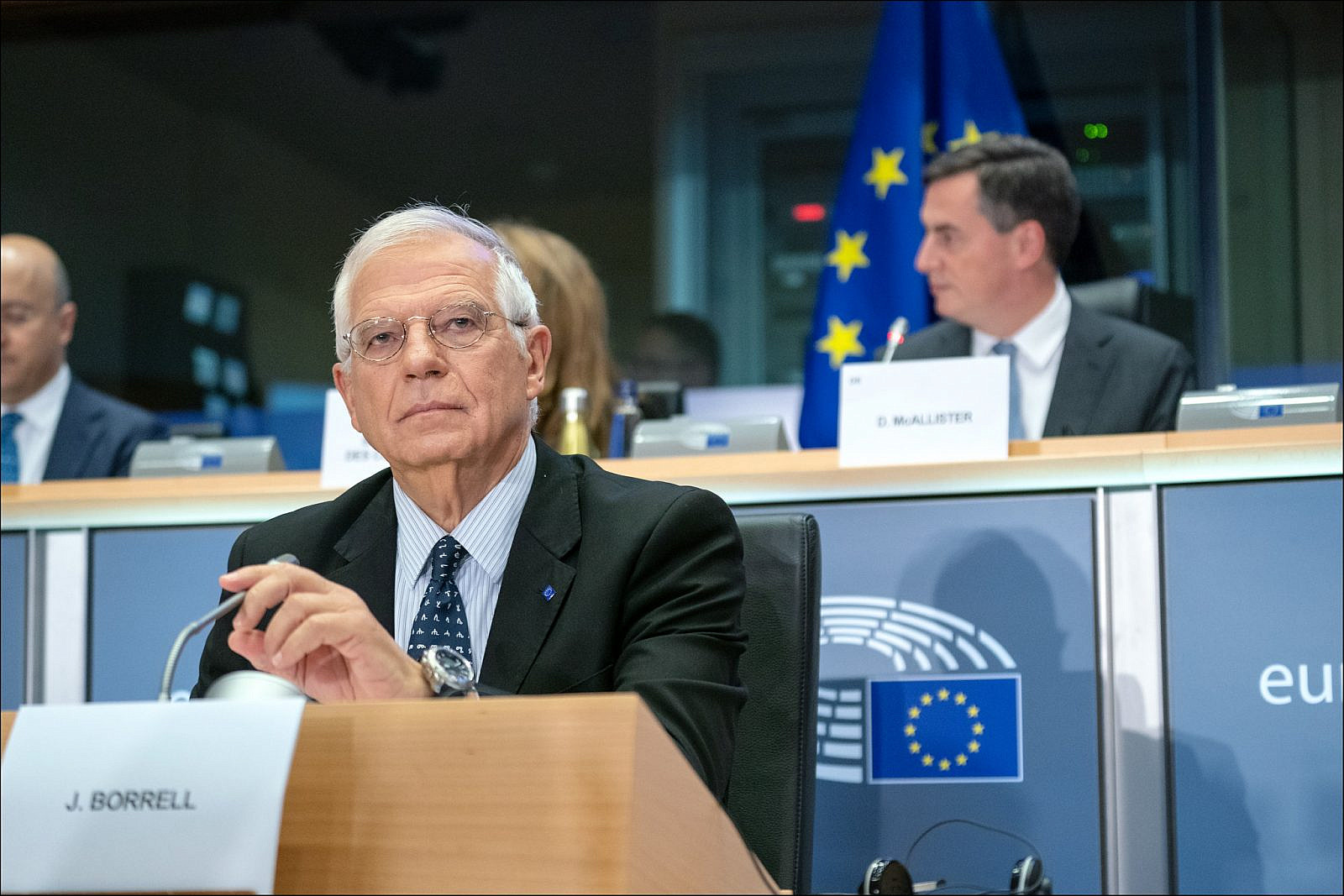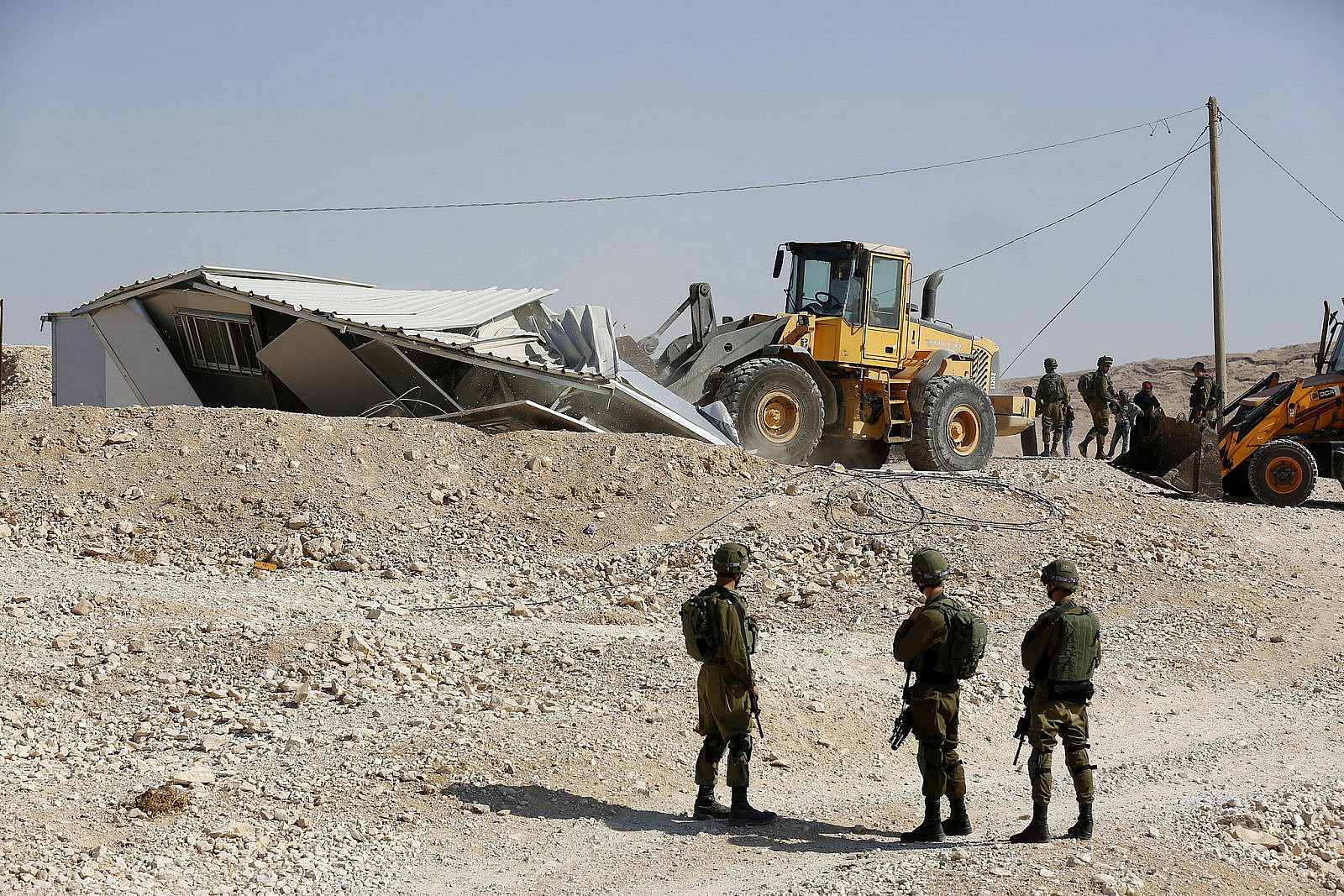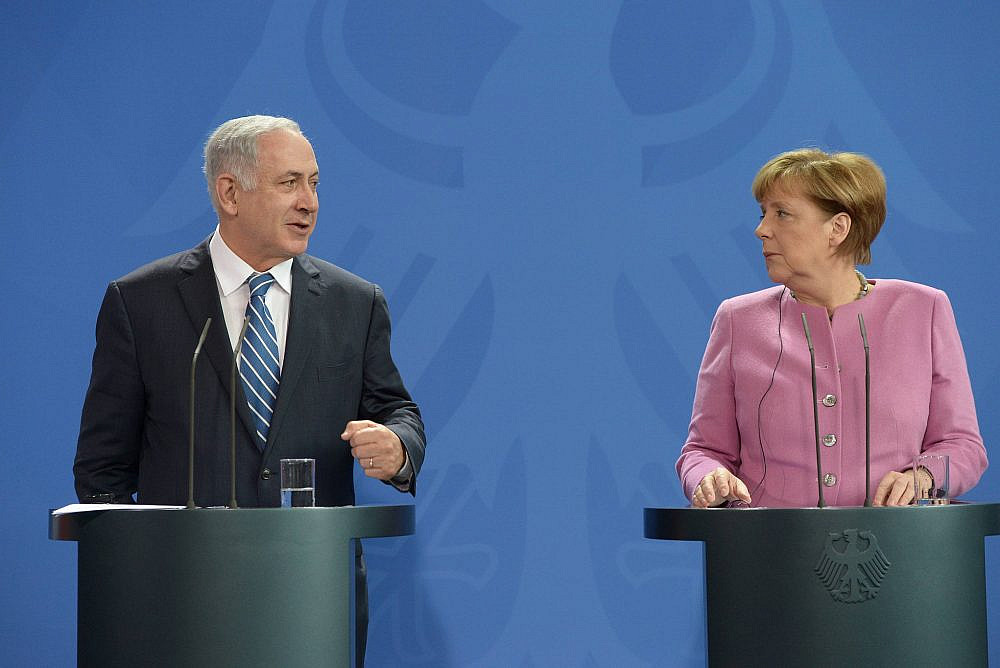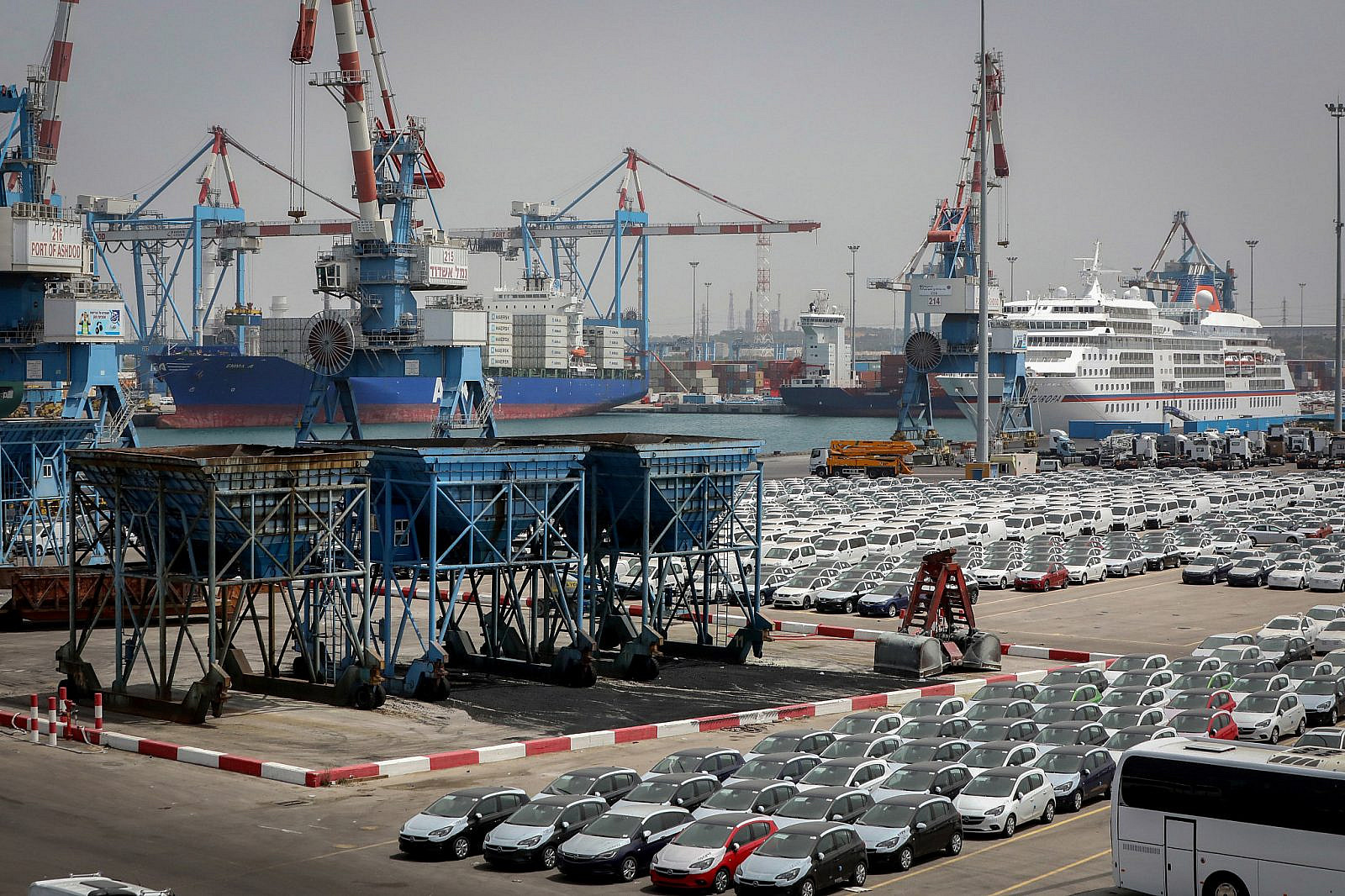If one were to ask a European politician or diplomat about the Israeli-Palestinian conflict, it would not take long before they uttered the weary words of “the two-state solution.”
Writing to +972 by email, a European Union spokesperson, who declined to be interviewed for this article, wrote: “The EU recalls its commitment to a negotiated two-state solution, based on 1967 lines… with the State of Israel and an independent… State of Palestine, living side by side in peace, security and mutual recognition.” Had the same question been asked of them two decades ago, the response likely would have been the same.
European policy has remained surprisingly static toward the conflict since the Oslo “peace process” began in the 1990s. Yet the situation on the ground in Israel and Palestine, and the diplomatic context in which it takes place, has changed dramatically.
As last week’s election demonstrated, Israeli politics have shifted rightward from the days when a two-state solution appeared more feasible. Under the Trump administration, the United States, Israel’s chief backer, has been unafraid to disrupt existing international norms around the conflict; indeed, President Donald Trump prides himself on tearing up the rulebook, including in Middle Eastern politics. Entering the 53rd year of indefinite occupation, growing numbers of Palestinians are also questioning the viability of a peace deal based on the 1967 borders.
Given these significant developments, why has the European Union — which asserts that human rights, democracy, and international law lie at the heart of its foreign policy — failed to adapt its approach?

“The EU is still trapped by its focus on the two-state paradigm,” says Miguel Rodriguez Vidosa, a Mashreq officer at EuroMed Rights, a network of NGOs working on human rights in the Euro-Mediterranean region. The parameters of this paradigm, he notes, effectively “subordinates respect for international norms and human rights to direct negotiations, peace process, and bilateralism between the two parties.”
The attachment to the two-state idea has disconnected Europe’s policy from the new political realities that are countering this goal. Since 2009, Israel has been governed by three consecutive right-wing coalitions led by Prime Minister Benjamin Netanyahu, who has made the prevention of a Palestinian state a cornerstone of his policy.
Even now, as Netanyahu’s grip on power is in question after falling short of a coalition majority in last week’s election, his main rival, Benny Gantz, hails from the political right rather than the once-strong left. The fact that annexation of large swathes of the West Bank, once a fringe idea, has become a mainstream policy promoted by both the Israeli government and its leading opposition, further demonstrates this rightward lurch. The fusing of the Israeli economy and its infrastructure to ongoing settlement projects in the occupied West Bank has also continued unabated.
The U.S., meanwhile, has “shifted the goalposts entirely off the field” — as one European diplomat described to +972 — yet the EU has still kept to the same script. Even after the U.S. unilaterally recognized Jerusalem as Israel’s capital, endorsed Israeli sovereignty over the occupied Golan Heights, and suspended funding to Palestinian institutions, the EU said that it would wait to see the terms of the peace initiative led by U.S. special adviser Jared Kushner.
Now that the “Deal of the Century” has been released, the EU has deferred further discussions on a substantive policy response until after Israel’s elections. For the time being, EU foreign policy chief Josep Borrell has merely stated concern that the U.S. plan “departs from these internationally agreed parameters” around the two-state solution.

Privately, several EU governments are very unhappy with Trump’s deal but are unwilling to publicly exclaim their objections, the EU diplomat told +972. Member states are particularly alarmed by the growing calls for immediate annexation by many Israeli politicians. This, says the diplomat, partly explains Borrell’s tone when he declared that such action by Israel toward annexation would not go “unchallenged.”
So far, however, it is unclear what that “challenge” entails. For all the EU’s repeated warnings, Israel has in fact been consolidating its sovereignty on both sides of the Green Line, while confining Palestinians into a collection of cantons — or perhaps more fittingly, Bantustans — under its rule.
As Vidosa puts it, the fixation on the two-state paradigm “has effectively hindered the Europeans from addressing the actual situation on the ground, characterized by a one-state reality of institutional discrimination and de facto annexation of the Palestinian territory.”
‘Wait and see’
It seems surprising that the EU is unable, or unwilling, to adapt its thinking. It certainly does not lack the power: as Israel’s number one trading partner, the EU holds considerable clout if it chooses to wield it.
Accounting for a third of Israel’s trade, the EU is an essential export market for Israeli goods; between 2011 and 2016, $15 billion worth of products were shipped to Europe. The continent also accounts for nearly half of all imports into Israel and is an important research partner, with many Israeli high-tech companies applying for and receiving innovation funding from the EU’s Horizon 2020 program.
While both partners benefit from this trade, Israel as the junior partner has more to lose should economic relations turn sour. The apprehension shown by the Israeli Foreign Ministry to public criticisms from EU officials suggests that Israeli leaders understand and are wary of this power dynamic, says the EU diplomat.
As such, Europe’s intransigence has less to do with a lack of policy options as it does with the constraints and shortcomings of its consensus-based decision-making model. In this case, the system suffers from a split between states that are consistently critical of Israeli policy — like Sweden, Spain, and Ireland — and those unwilling to publicly chastise it — like Germany, Hungary, and the Czech Republic.
In lieu of a decision, Europe is adopting a policy of “wait and see” — which, according to Said Mahmoudi, a professor of international law at Stockholm University, is tantamount to “total submission” to U.S. and Israeli actions. “They hope that the time of Trump will end and they can keep the status quo until a more moderate [U.S.] president takes over… [and] that Netanyahu will be replaced by a more moderate politician… who is ready to negotiate on different terms,” Mahmoudi says.
This strategy has its limits, however. For one, it presupposes that the situation in Israel and Palestine will become more conducive to peace-building with time, despite the opposite proving to be the case. For another, rather than striving to improve the circumstances, policymakers risk finding themselves in even less favorable conditions.
“If he [Trump] is re-elected, there might need to be a rethink”, the EU diplomat says, including the question of why Europe is sending money to support the building of a Palestinian state if they are not ensuring that state will come into existence.

This is even more perplexing given that several EU states are actively intervening in the diplomatic arena to maintain the status quo, even when it goes against their declared objective of achieving Palestinian statehood.
Last month, Austria, the Czech Republic, Germany, and Hungary (along with Brazil and Uganda) submitted opinions to the International Criminal Court (ICC) arguing that the court does not have the jurisdiction to probe war crimes committed in the occupied territories because Palestine is not a state, and therefore, is unable to defer its sovereignty to the court for the investigation.
The contradiction between desiring Palestinian statehood while simultaneously undermining it remains unresolved. For now, however, EU members remain in agreement that the pursuit of the two-state solution is better than the main alternatives on the table: neither an apartheid single-state nor the status-quo are attractive options for them.
Moreover, the EU diplomat says, many people in Israel and in Palestine, and the consensus of the international community, continue to believe that the two-state solution is the best hope for peace. Still, he acknowledges, “It is not a denial of reality, but there may be an element of wishful thinking to it.”
This calculation could change if Israel carries out annexation of large parts of the West Bank, or if there is further construction of settlements, particularly around Jerusalem, that entrenches the discriminatory legal regime over millions of Palestinians, adds the diplomat.


